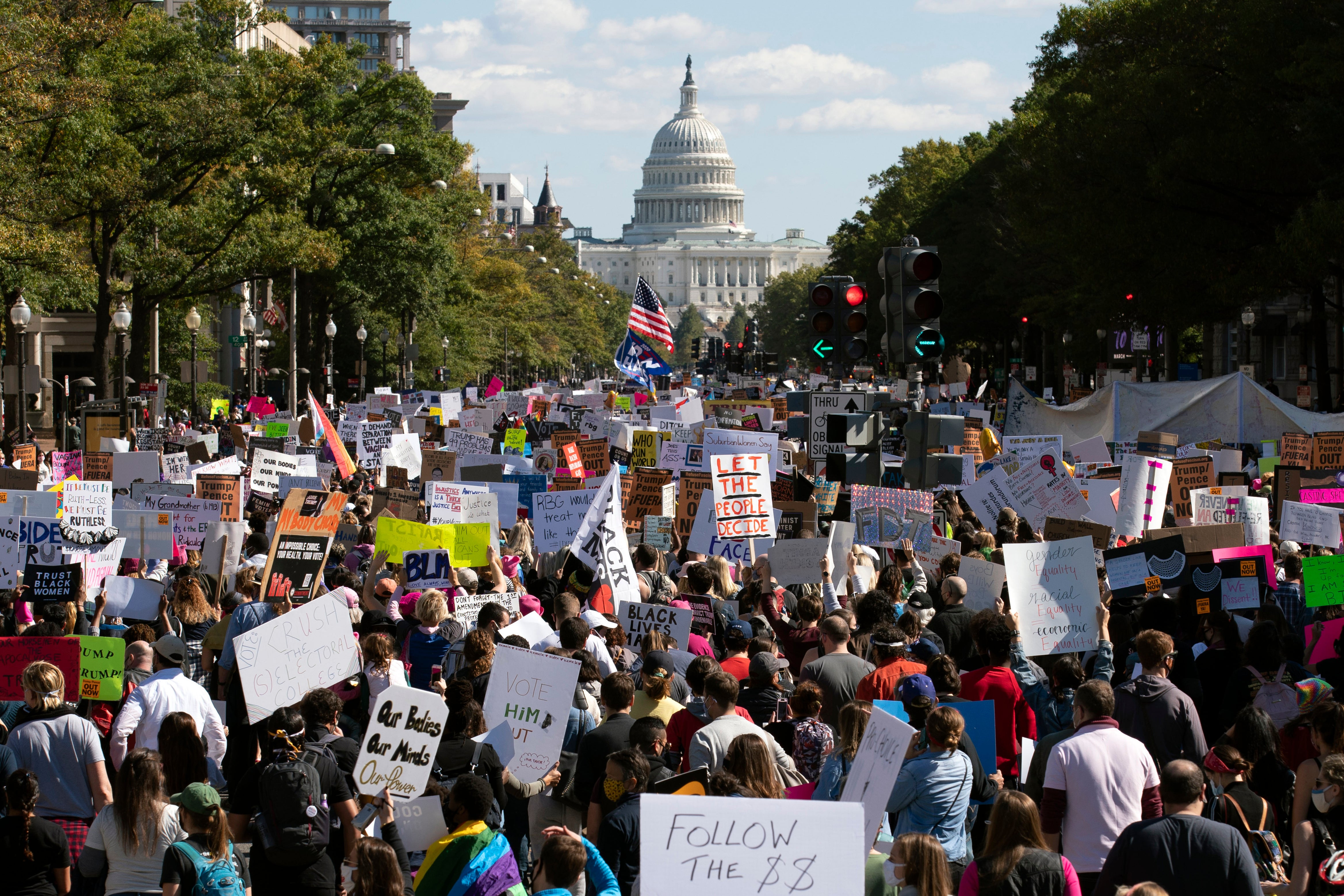Women's march targets Supreme Court, with abortion on line
The first big women’s march of the Biden administration heads straight for the steps of the U.S. Supreme Court

Your support helps us to tell the story
From reproductive rights to climate change to Big Tech, The Independent is on the ground when the story is developing. Whether it's investigating the financials of Elon Musk's pro-Trump PAC or producing our latest documentary, 'The A Word', which shines a light on the American women fighting for reproductive rights, we know how important it is to parse out the facts from the messaging.
At such a critical moment in US history, we need reporters on the ground. Your donation allows us to keep sending journalists to speak to both sides of the story.
The Independent is trusted by Americans across the entire political spectrum. And unlike many other quality news outlets, we choose not to lock Americans out of our reporting and analysis with paywalls. We believe quality journalism should be available to everyone, paid for by those who can afford it.
Your support makes all the difference.The first Women's March of the Biden administration heads straight for the steps of the U.S. Supreme Court on Saturday, part of protests around the country demanding continued access to abortion in a year that conservative lawmakers and judges have that access on the line.
Organizers say the Washington march will be among hundreds of abortion-themed protests around the country Saturday. The demonstrations come days before the start of a new term for the Supreme Court that will decide the future of abortion rights in the United States after appointments of justices by President Donald Trump strengthened conservative control of the high court.
The march is part of “a fight to secure, safeguard, and strengthen our constitutional right to an abortion,” Rachel O'Leary Carmona, executive director of the Women's March, said in a statement. “And it’s a fight against the Supreme Court justices, state lawmakers, and senators who aren’t on our side — or aren’t acting with the urgency this moment demands.”
The march comes a day after the Biden administration urged a federal judge to block the nation’s most restrictive abortion law, which has banned most abortions in Texas since early September.
It's one of a series of cases that will give the nation's divided high court occasion to uphold or overrule the landmark Roe v. Wade decision from 1973, which made abortion legal for generations of American women.
An opponent of women's access to abortion called this year's march theme “macabre.”
“What about equal rights for unborn women?” tweeted Jeanne Mancini, president of an anti-abortion group called March for Life.
The Women's March has become a regular event — although interrupted by the coronavirus pandemic — since millions of women turned out in the United States and around the world the day after the January 2017 inauguration of Trump. Trump endorsed punishing women for getting abortions and made appointment of conservative judges a mission of his presidency.
Without Trump as a central figure for women of varied political beliefs to rally against, and with the pandemic still going strong, organizers talk of hundreds of thousands of participants nationally Saturday, not the millions of 2017.
Latina comedian and activist Cristela Alonzo will host the rally in the capital, which will feature speakers from Planned Parenthood and other advocates and providers of abortion access. Actress Busy Philipps and swimmer Schuyler Bailar are due to take part.
.